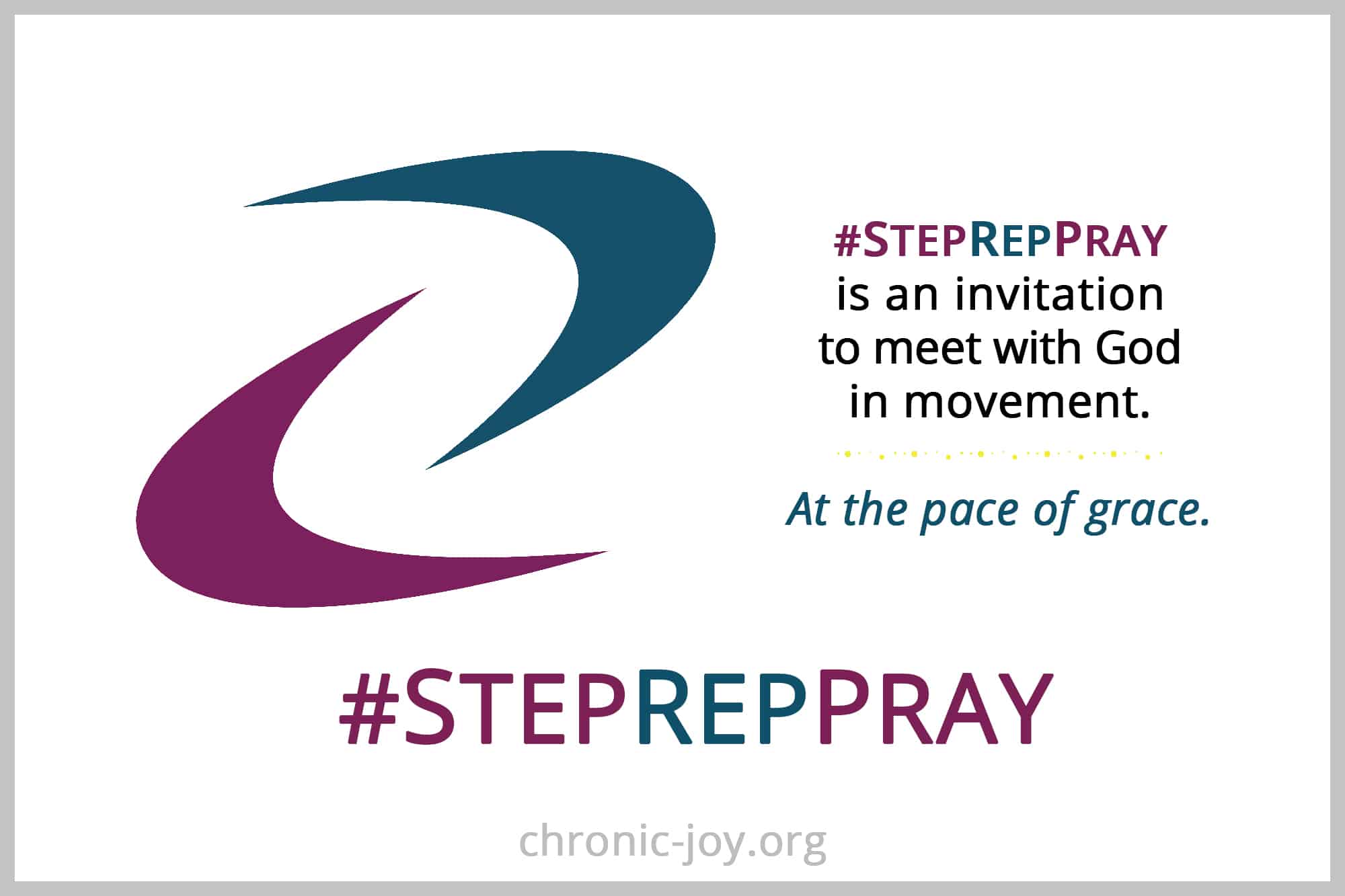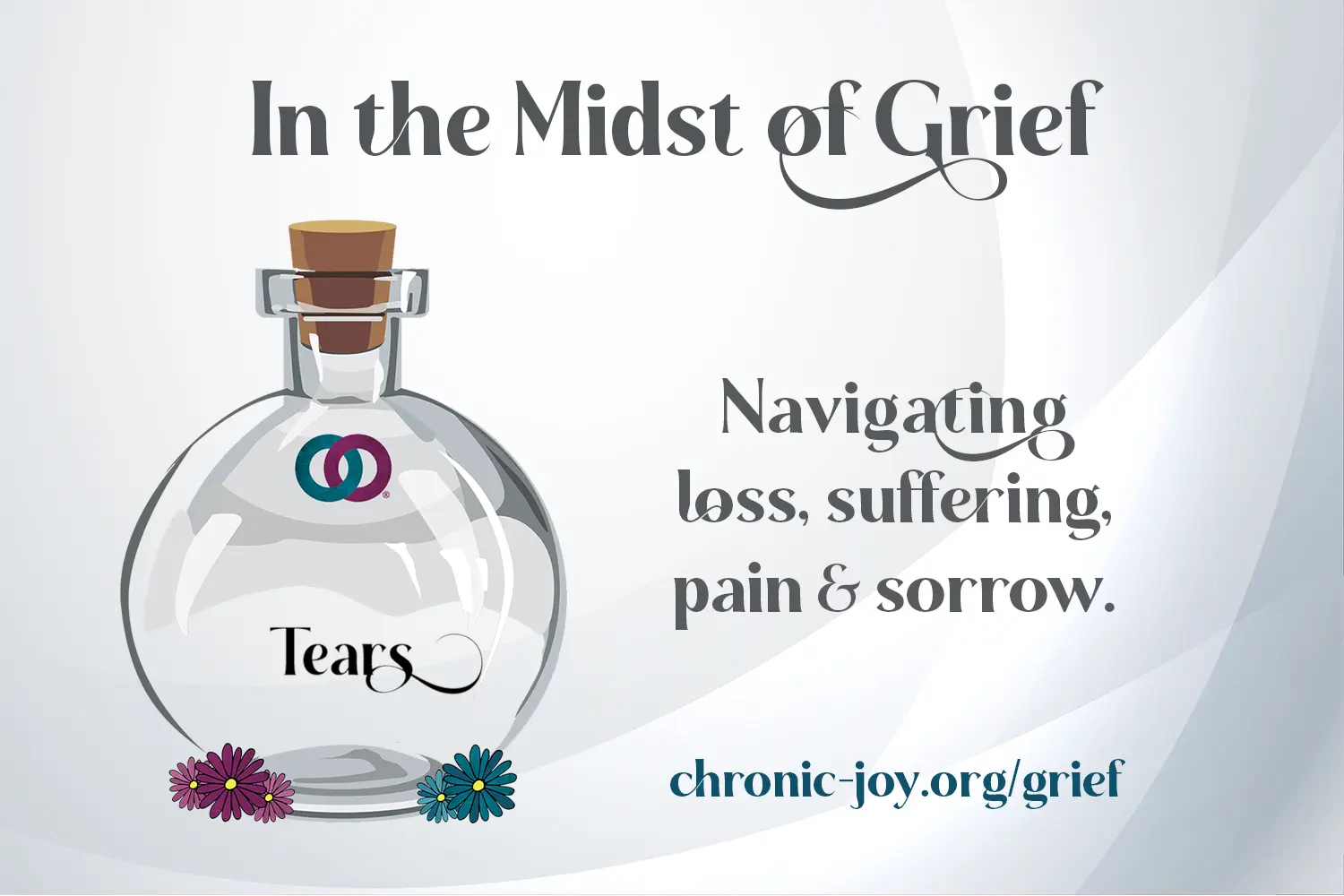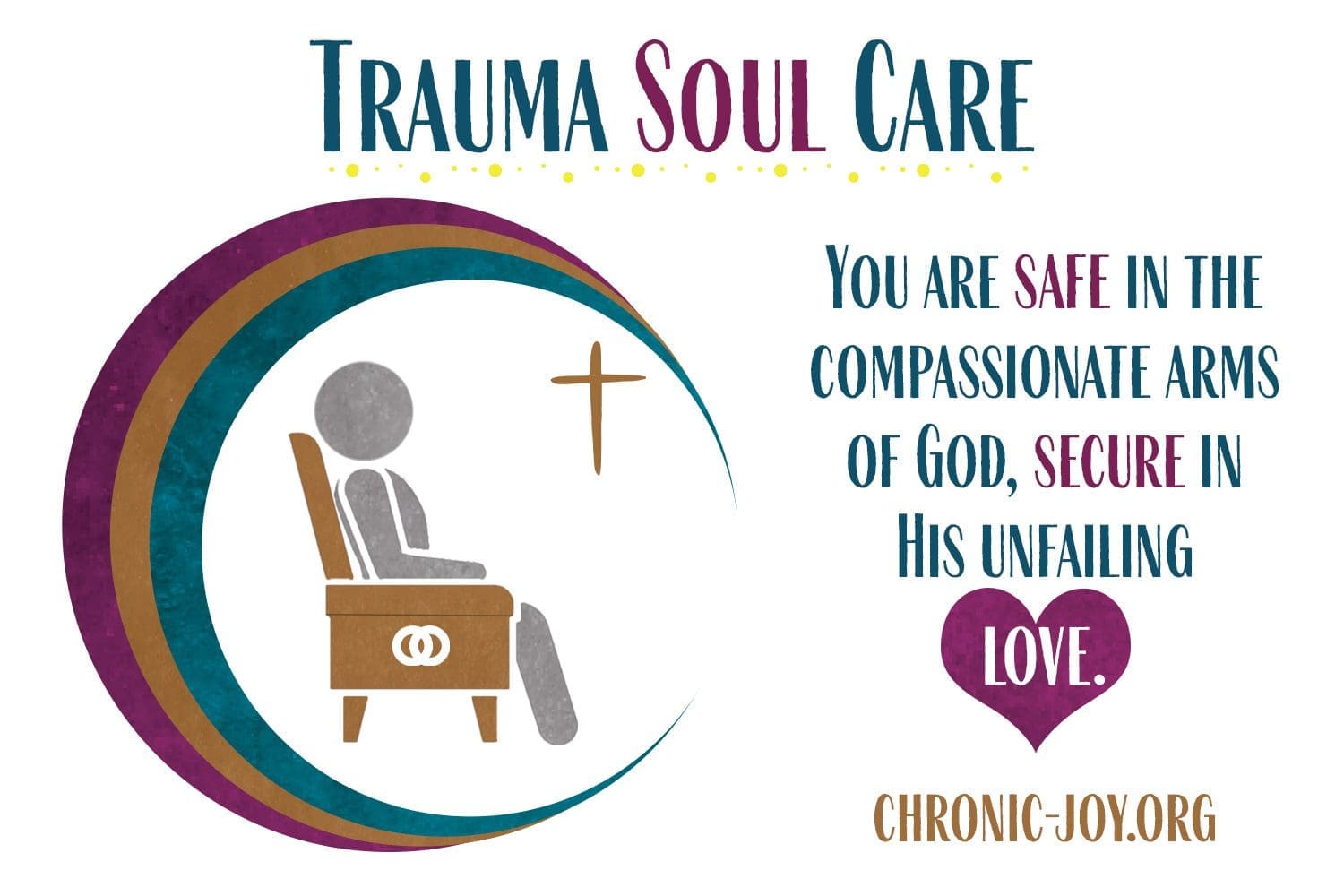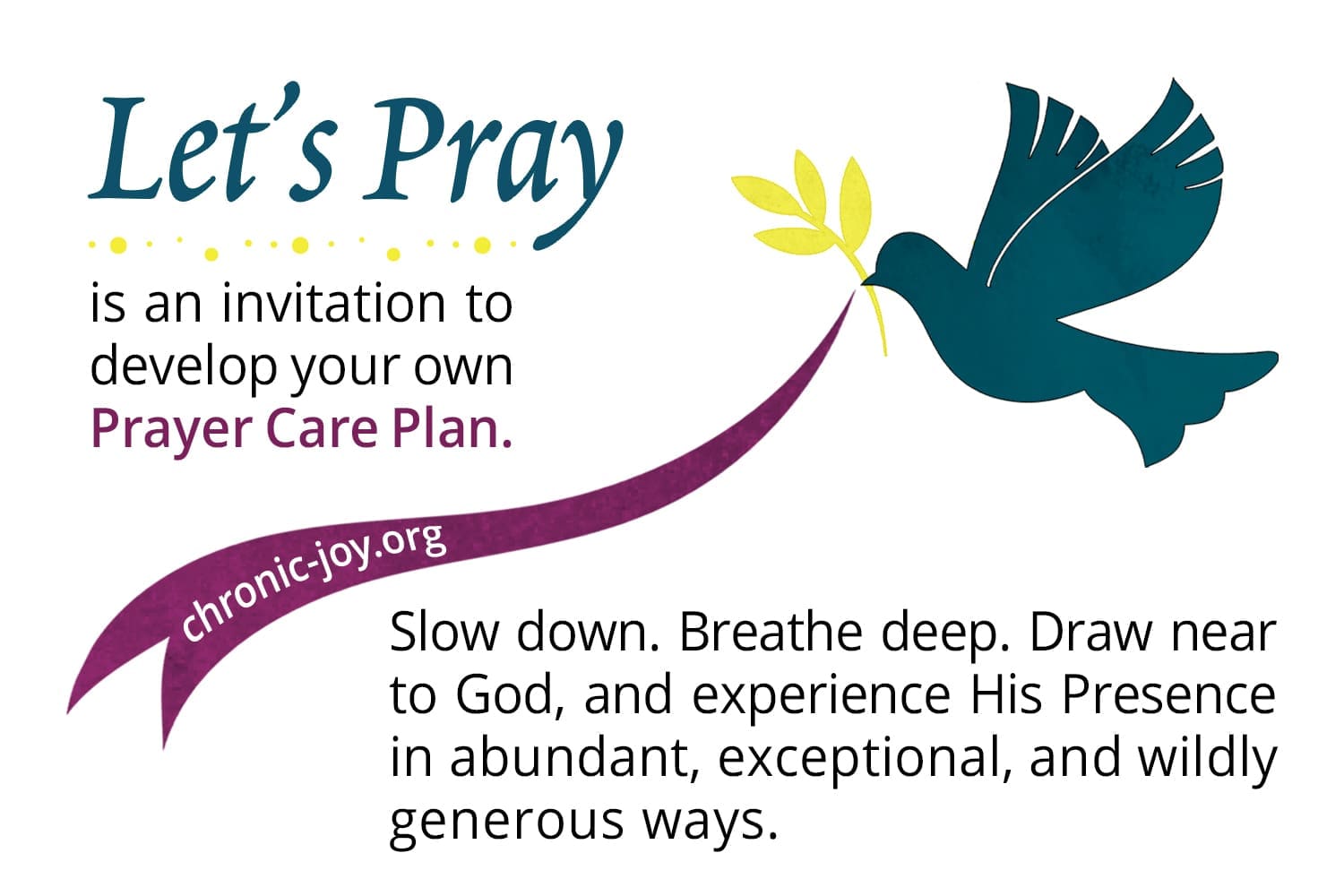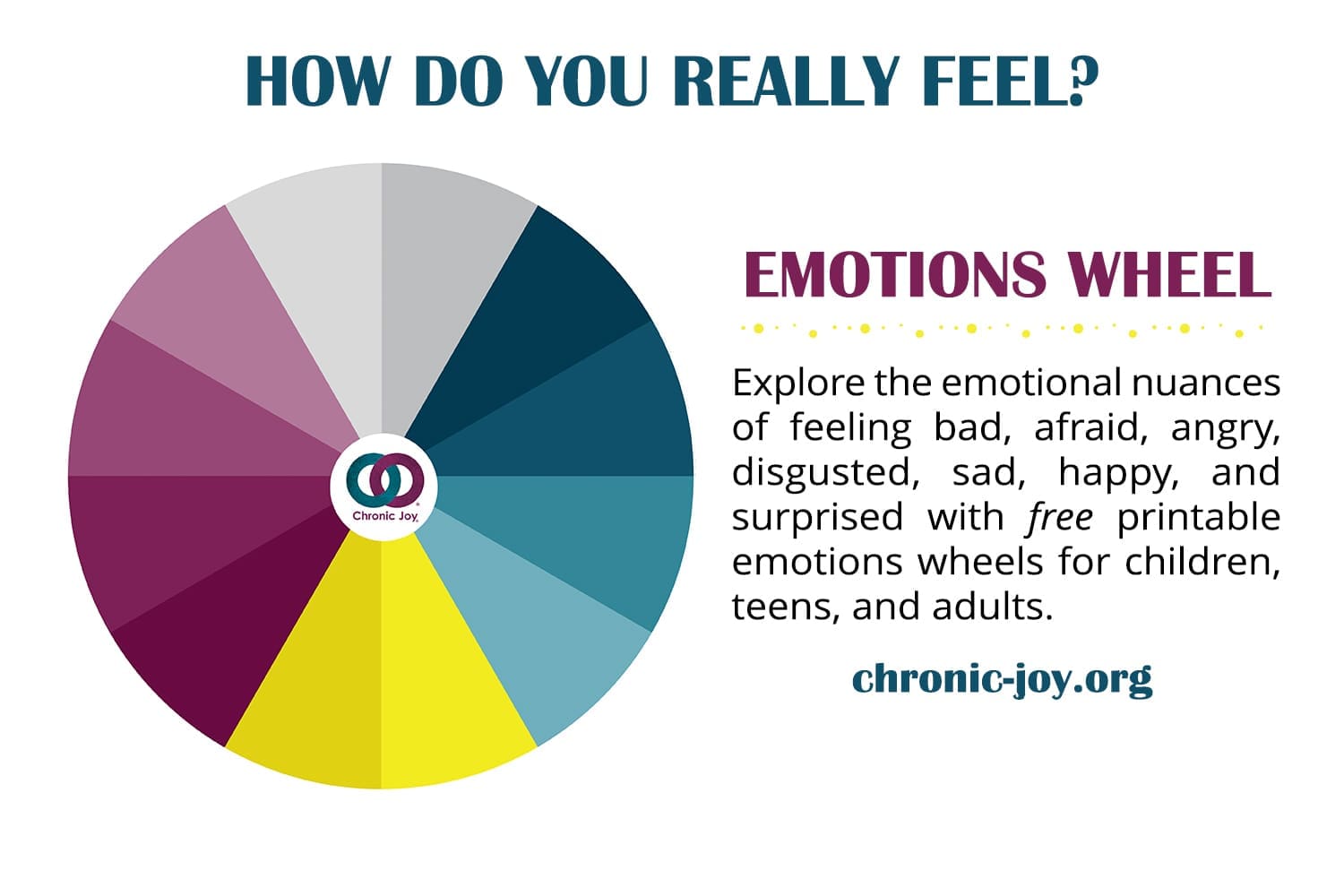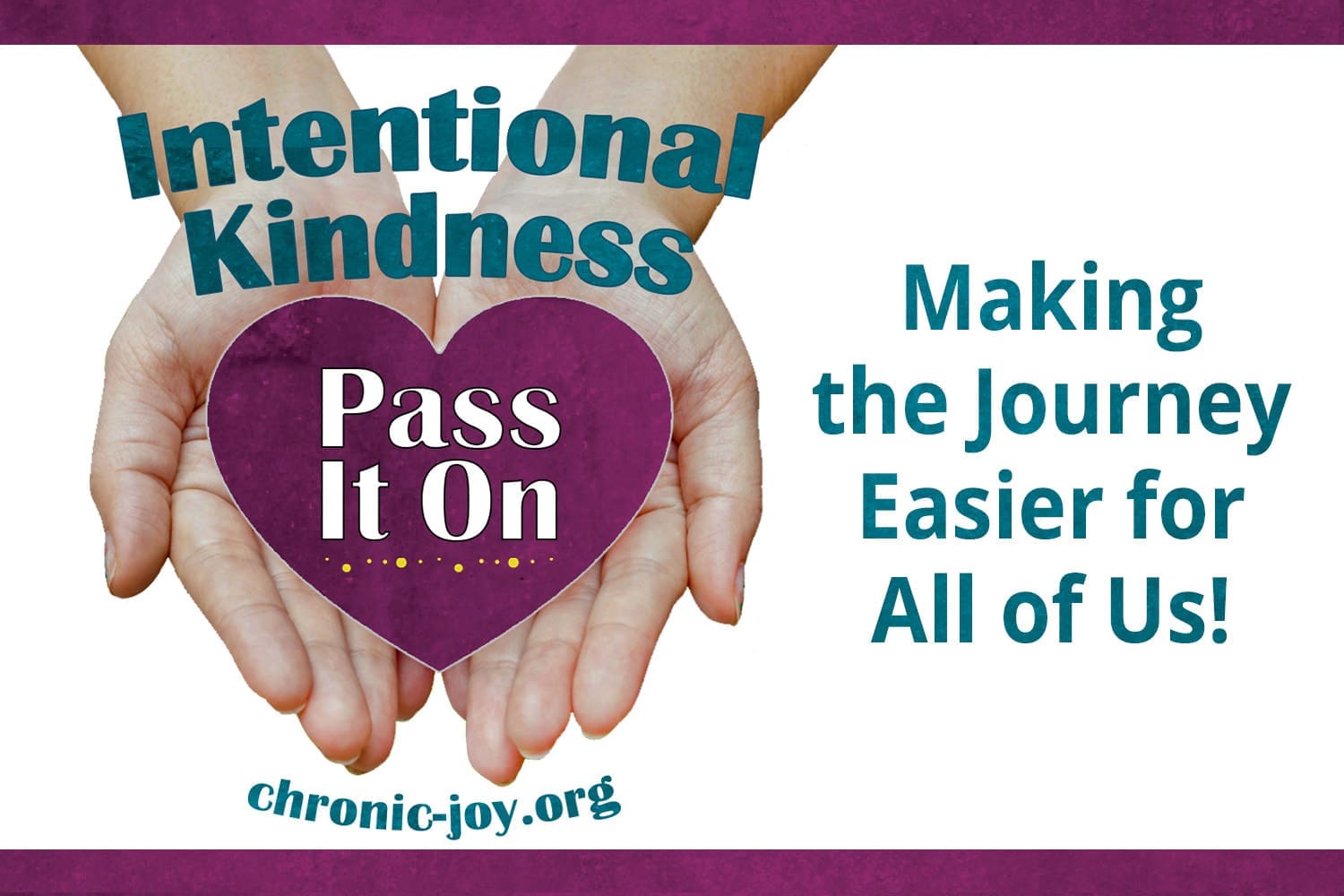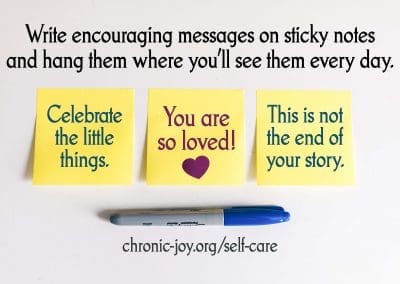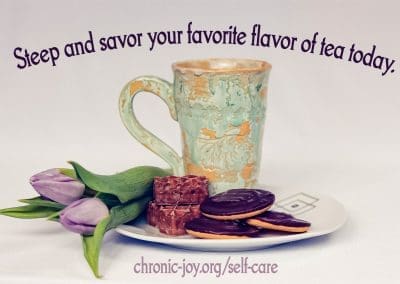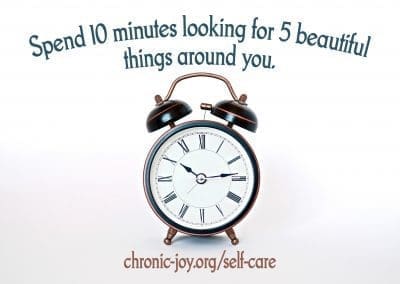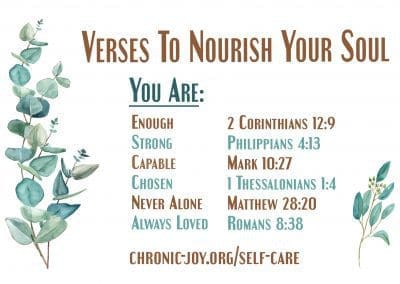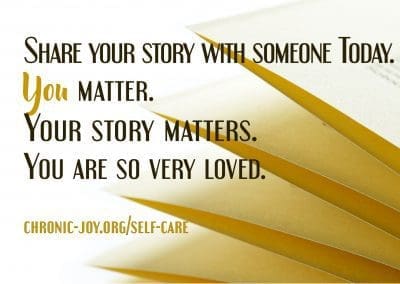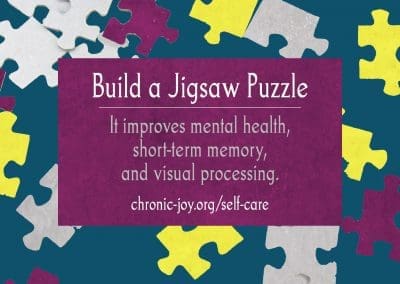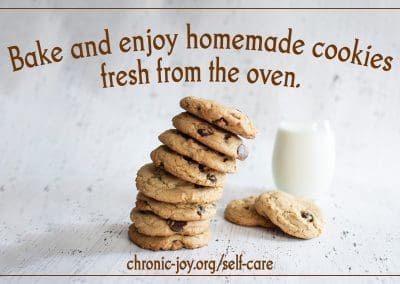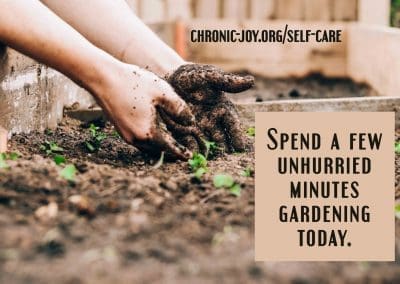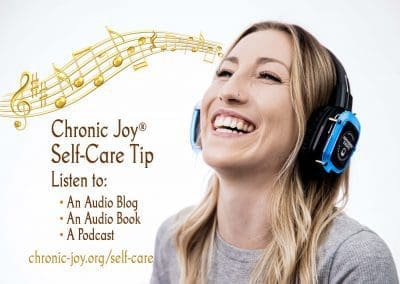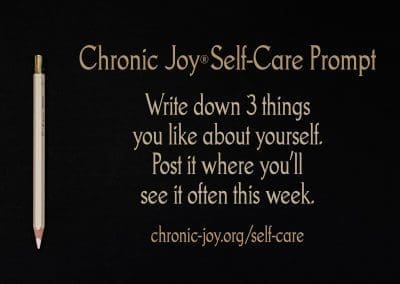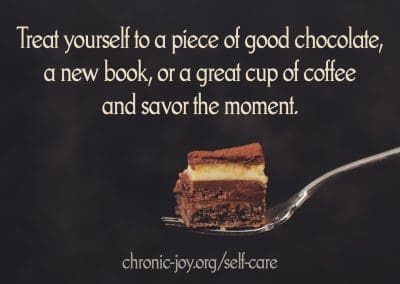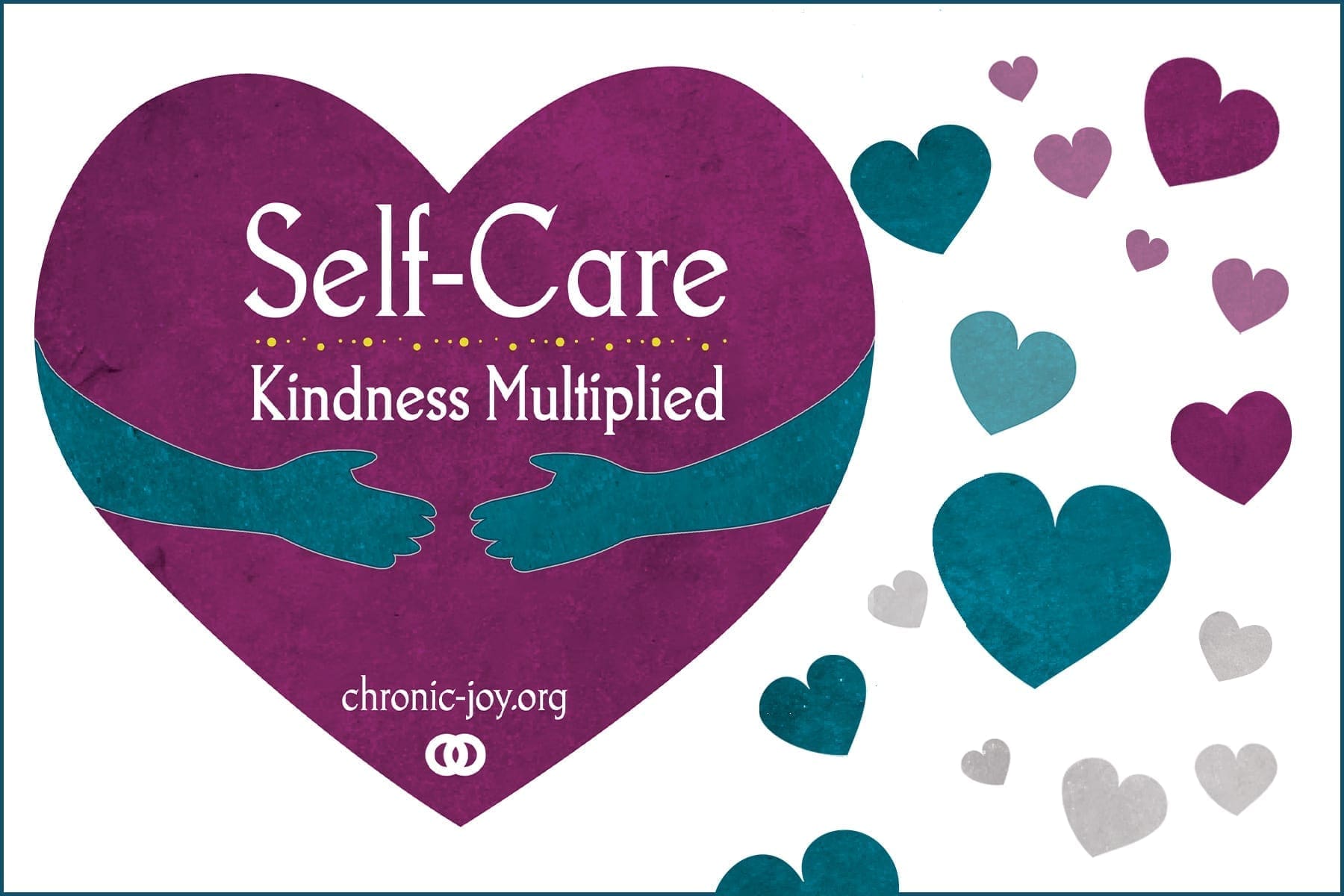
Self-Care
Kindness Multiplied
When we are kind and generous with ourselves, we can pour kindness and love into others. Take time and take care of yourself, because you are God’s beloved.
Don’t you know that your body is the temple of the Holy Spirit who comes from God and dwells inside of you? You do not own yourself. You have been purchased at a great price, so use your body to bring glory to God! (1 Corinthians 6:19-20)
SELF-CAre envelope
REQUEST your free self-care resources.
Limit one – US, CA & UK.
“Caring for our own hearts isn’t selfishness; it’s how we begin to love.” John Eldredge
When chronic illness, mental illness, or chronic pain is a constant companion, life can feel overwhelming. That’s why it’s so important for us to be kind and generous with ourselves. Intentional kindness becomes kindness multiplied when we practice these five types of self-care for our bodies, minds, souls, emotions, and in community.
SELF-CARE FOR YOUR BODY
Practicing physical self-care means showing simple kindness to our bodies, giving them what they need, and doing things that help us live well. We can be better stewards of the bodies God gave us and be better prepared to serve in the unique ways God created for each of us when we can take to heart Romans 12:1:
Therefore, I urge you, brothers and sisters, in view of God’s mercy, to offer your bodies as a living sacrifice, holy and pleasing to God— this is your true and proper worship.
SELF-CARE FOR YOUR MIND
Mental self-care means exercising our brains, keeping our minds sharp, redirecting our thoughts, and focusing on what is positive and true. Sometimes feelings of despair or focusing on difficulties and “what ifs” can spiral into a negative loop. Romans 12:2 gives us hope of breaking those cycles and moving forward:
Do not conform to the pattern of this world, but be transformed by the renewing of your mind. Then you will be able to test and approve what God’s will is— his good, pleasing and perfect will.
SELF-CARE FOR YOUR SOUL
Spiritual self-care can help us draw closer to the Lord, grow in faith, and communicate with Him on a deeper level. When it seems like our thoughts and emotions are all over the place, we can find refuge in His Word as we listen for God’s voice, discovering His comfort and steady guidance. We can cling to Him through the words of Psalm 63:7-8:
Because you are my help, I sing in the shadow of your wings. My soul clings to you; your right hand upholds me.
SELF-CARE FOR YOUR EMOTIONS
Emotional self-care helps us to identify what we’re really feeling and how to express it in healthy ways. We can start by bringing what we feel to God, trusting Him with it all, and leaning into His Presence (as we read in Psalm 62:8):
Trust in him at all times, you people; pour out your hearts to him, for God is our refuge.
SELF-CARE INCLUDES COMMUNITY
Christian community is rooted in love, nourished in prayer, and strengthened in courageous vulnerability as we extend and receive love, kindness, and compassion. We can receive God’s comfort from others just as it says in 2 Corinthians 1:3-4:
Praise be to the God and Father of our Lord Jesus Christ, the Father of compassion and the God of all comfort, who comforts us in all our troubles, so that we can comfort those in any trouble with the comfort we ourselves have received from God.
STEP INTO SELF-CARE

ENCOURAGING TIPS FOR SELF-CARE
Sticky Notes
Write encouraging messages on sticky notes and hang them where you’ll see them every day.
Declutter
Today, declutter one small closet, junk drawer, or pantry shelf. Start small. Add one shelf, drawer or closet each week, and soon your life will feel lighter and brighter.
Light A Candle
Light a candle. Enjoy its dancing flame and gentle glow. Jesus said, “I am the light of the world. Whoever follows me will never walk in darkness, but will have the light of life.” (John 8:12)
Lace Up Your Shoes
Lace up your shoes and go for a walk. “To walk in nature is to witness a thousand miracles.” (Mary Davis)
Nourish Your Soul
Verses to nourish your soul. You are: enough, strong, capable, chosen, never alone, and always loved.
Share Your Story
Share your story with someone today. You matter. Your story matters. You are so very loved.
Simple Pleasure of Coloring
Today, tap into your creative side. Pull out a coloring book or download a coloring page and have fun with this simple pleasure.
Build A Jigsaw Puzzle
Build a jigsaw puzzle. It improves mental health, short-term memory, and visual processing.
Nap
Snuggle up today and nap. “In peace I will lie down and sleep, for you alone, Lord, make me dwell in safety.” (Psalm 4:8)
3 Things You Like About Yourself
Chronic Joy® Self-Care Prompt: Write down 3 things you like about yourself. Post it where you’ll see it often this week.
Savor the Moment
Treat yourself to a piece of good chocolate, a new book, or a great cup of coffee and savor the moment.




